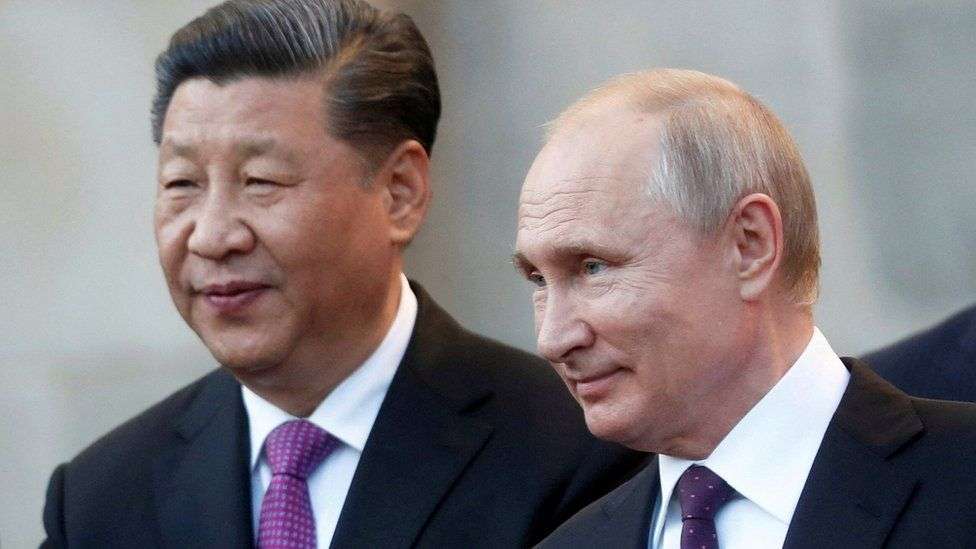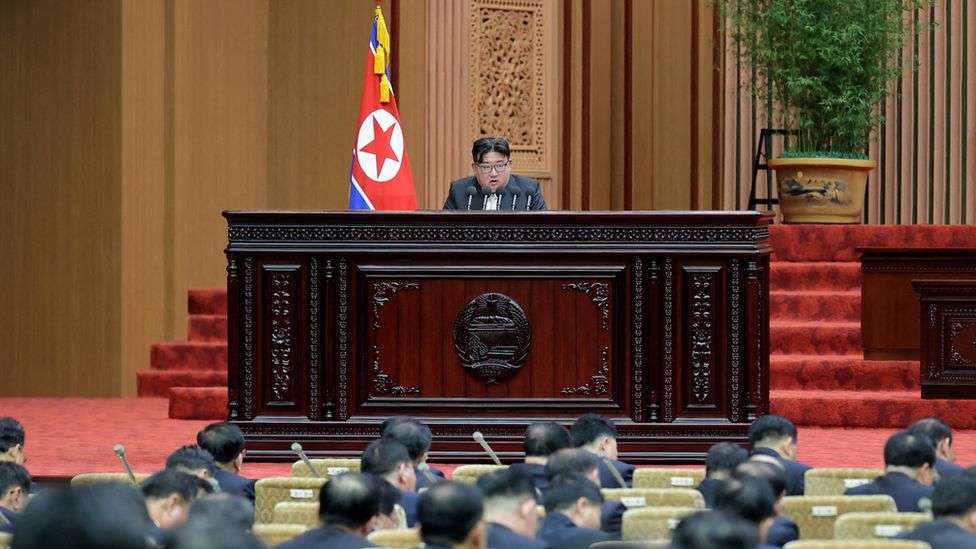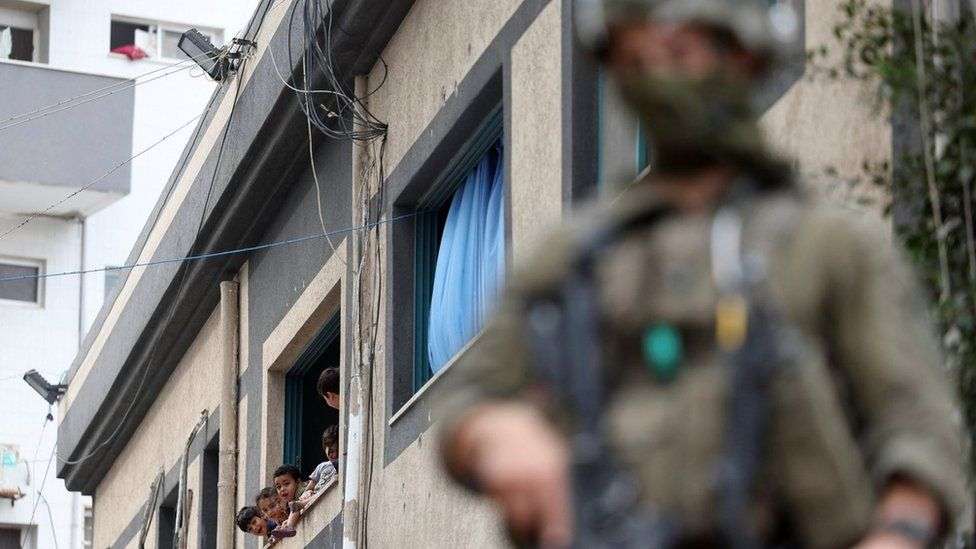President Vladimir Putin has arrived in China, Russia's most important ally, for a key trip that will seek to shore up an alliance against the West and celebrate ties between Beijing and Moscow. But how strong are relations between the two countries?
The small city of Heihe sits along China's border with Russia. Local tourists come here to peek into neighbouring Blagoveshchensk, just across the river, but there are not many of them.
A tour boat sits idle on the water, pumping out happy-sounding Chinese songs in an attempt to attract customers, but with nobody buying tickets it doesn't look like it's going to move all day.
Across the water, a Russian coastguard ship is parked, and officers pass the time doing exercises on deck in the autumn sun.
When Vladimir Putin visited Beijing for the opening of the Winter Olympics at the beginning of last year, he and Xi Jinping announced a new "no limits" partnership between their countries.
Now, with Russia's leader back in the Chinese capital, China's state media has been hailing the fruits of this relationship.
In one way, it has been beneficial for both governments. They can reassure one another when they are frozen out on the world stage, and images of their handshakes are useful to try to show their own people that all is normal, with such powerful friends standing together. However, business activity in their border zones does not appear to live up to the political rhetoric.
A newly-built bridge into Blagoveshchensk from Heihe was celebrated as the symbol of a new era in cross-border trade yet you can observe it for an hour and not see a single vehicle driving in either direction.
In the heart of the city, behind the small clusters of tourists taking photos across the river, two large multi-storey shopping centres have been closed due to a lack of patronage. One shut just months ago, and we're told the other has been empty for seven years.
Some of the former stallholders are parked in front of the first building selling Russian gifts and gadgets out of the backs of their cars.
"Business isn't good. There aren't enough tourists," one woman says.
"After Covid, the borders haven't been open for long. There aren't enough Russians coming across. They're poor and they're at war."
Others selling goods nod along as she says this.
In a street nearby, a woman in a small shop is selling hats made in China, using Russian fur. She says they were once very popular with both Russian and Chinese customers but that recently her business has been struggling.
"You can't compare now to the past," she says. "Just take a look at the streets. They're empty. In the past they were filled with potential buyers."
There is however, one group which is more upbeat about Russia-China trade: the lorry drivers waiting to enter the riverboat port.
"I'm carrying soybeans, wheat and barley, all from Russia, and it's busier than before," says one driver.
"I'm transporting sand and coal from Russia. Others are moving containers with food," says another.
And the entrance to the port does look busy, with all manner of materials being hauled in and out. Cranes are lifting steel frames, coal and sand off ships and lowering them on to the waiting lorries.
The drivers say that crossing between the countries by boat is cheaper than using the new bridge, which could partly explain why it's more used.
Other businesspeople in Heihe say that new Russian tariffs on some Chinese goods have dampened the trade atmosphere.
And yet China has been helping out its partner, hit by sanctions following its invasion of Ukraine, by piping more Russian natural gas into its north-eastern province of Heilongjiang.
In addition, Xi Jinping's administration has swung most of the Chinese population behind Vladimir Putin's war effort.
It has done this via state-controlled media, which do not speak about an "invasion" or even a "war" in Ukraine but rather a Russian operation that is justified to counter the expansionary tendencies of Nato and, in particular, the United States.
To gauge the success of this propaganda strategy, you only have to speak to people on the street in Harbin, the regional capital of Heilongjiang.
A century ago, it was dominated by Russian people and Russian culture, but even the descendants of these families have now left. It is a completely Chinese city these days with only remnants of its Russian past.
In front of the beautiful Russian Orthodox cathedral, tourists arriving from other Chinese provinces pose for pictures.
"Russia and China have a good friendship," one woman says.
The man next to her adds: "Putin is a responsible leader. A man with a sense of justice."
Another, visiting with his friend, says: "Putin is a man with iron fists. He's tough, and tough is good."
But does he know why Russia's leader is at war with Ukraine?
"Ordinary people like us shouldn't comment on that," he replies.
Russia's war could be assisting Beijing's geostrategic aims by eating up Nato resources and - in the eyes of some - promoting a view that association with the US brings potential danger and even chaos.
The flip side of this is that the Ukraine conflict could also lead to an increase in Nato's power, while degrading an already struggling Russian economy. What's more, it has also given China's Communist Party a taste of the personal misery and economic pain which might come with a move to take Taiwan by force.
Officially, Vladmir Putin is in China this week to attend the forum considering the progress of Xi Jinping's pet project, the Belt and Road Initiative. It is a global transport infrastructure programme linking China with countries to its west, but which has been criticised for, at times, locking poorer nations into debt traps.
When the leaders of China and Russia meet on the sidelines of this conference, they will celebrate the strengthening of their ties, as they attempt to build a broader coalition against the West with other like-minded governments.
And you can see the benefits of this, for them.
However, there is still a long way to go for China's trade with Russia to match its trade with many of the same Western countries that are decried as ideological enemies








